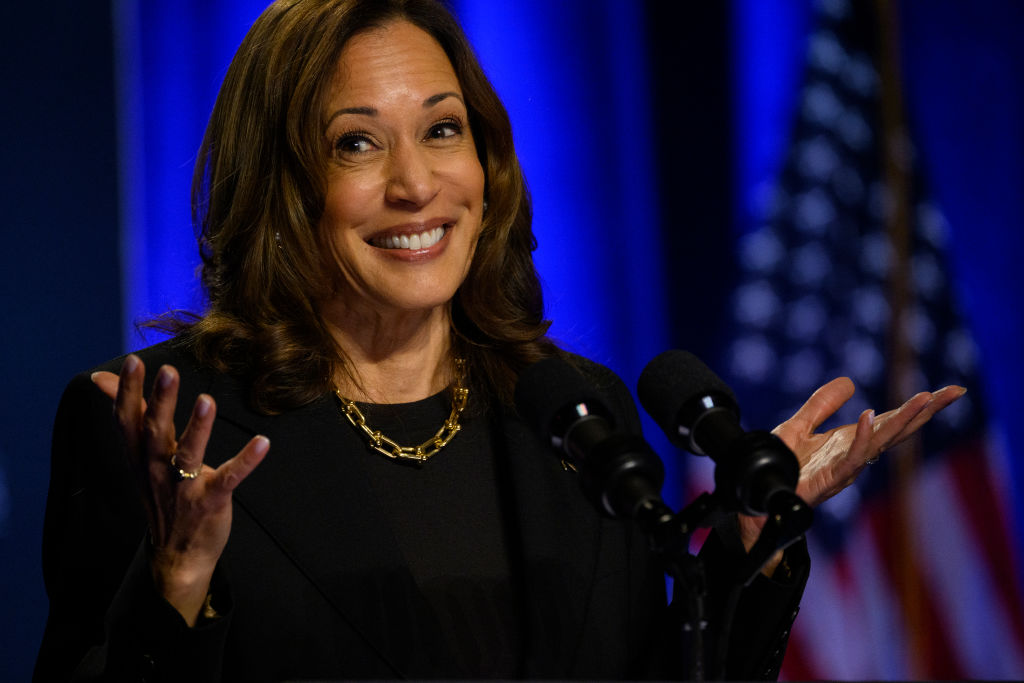Joe Biden’s withdrawal from the US presidential race in July saw an effective reset of the election, leading to renewed hopes for the Democrats’ chances of retaining the White House. Recent polling evidence indicates that Kamala Harris is a stronger electoral asset than Biden, but their supporters differ in important ways.
Crucially, Harris seems to have reunited the party, persuading swing voters that she can be trusted in power. Under Biden, the Democratic coalition was dwindling to include only the party faithful. The latest Focaldata polling has found that Harris’s biggest gains in approval compared to Biden are not with the strongly Democratic base, but with those who characterise themselves as “not very strong” or “lean” Democrats. She has gained a massive 28 points with the former group (Biden +44 approval versus Harris +73) and an even larger 36 points with the latter (+44 to +79).
| Harris makes big gains with Democratic leaners |
| Change in net approval rating: Joe Biden vs. Kamala Harris |
We also see that Harris has re-energised many young people towards the Democrats, particularly young women. While Biden’s presidency saw net negative ratings with 18-34 year olds, Harris has climbed to +27 with young men and +31 with young women, seeing a near 50-point jump with women under 25. The Harris team should still be worried, however, that she remains underwater and sees her smallest gains with voters aged 55+, who have the highest turnout across the age groups.
Likewise, the demographics with whom Harris sees her biggest gains tend to be less concentrated in swing states. Some of her biggest improvements on Biden’s scores are with Hispanic voters, for example, but the seven key swing states in this election are much less Hispanic than the nation as a whole — only about half as many eligible voters (8%) are of Hispanic or Latino origin compared to the rest of the country (15%). Swing state voters are also whiter than average (74% vs 71%), and are marginally more likely to be aged over 55. The Harris coalition therefore looks less efficient in electoral terms than Biden’s, with a younger, more female and more diverse outlook, perhaps landing somewhere between Hillary Clinton voters in 2016 and Barack Obama voters in 2012.
The most important issues to voters differ greatly by partisanship, but we see a surprisingly large difference in priorities between those who have a favourable view of the current Democratic nominee and her predecessor. Among Biden favourables, there is little separating the top three issues of inflation/cost of living (37%), abortion (36%) and democracy (33%). Among those with a favourable view of Harris, inflation climbs by double figures to 48%, abortion drops to 31%, and democracy falls by 12 points to just 21%, replaced in the top three by healthcare (26%).
| Pro-Harris voters focus on 'bread and butter' issues |
| Change in top issues: Joe Biden vs Kamala Harris |
These changes in salience are partly a function of the Harris electorate taking on board a larger share of Democratic leaners, whose policy priorities match the general public more than those of party activists, but they also highlight the task facing Harris in speaking to a broader audience as opposed to the hardcore Democratic base.
The Democratic coalition is less efficient than in 2020, and the voters giving Harris a hearing are much more focused on typical election issues. They are more concerned with inflation than abortion, and the precariousness of the healthcare system as opposed to the health of the nation’s democracy. The Harris-Walz ticket must give these voters a clear economic message tailored for working Americans. Grandiose claims about saving democracy from sinister forces may fall on deaf ears.











Join the discussion
Join like minded readers that support our journalism by becoming a paid subscriber
To join the discussion in the comments, become a paid subscriber.
Join like minded readers that support our journalism, read unlimited articles and enjoy other subscriber-only benefits.
Subscribe